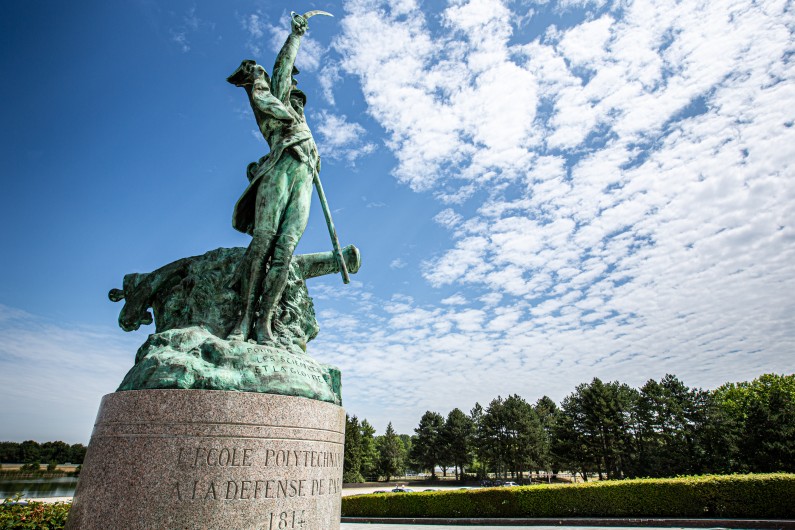École Polytechnique's Chairs: a legacy reinvented to meet contemporary challenges

Founded in 1794, at the height of the French Revolution, École Polytechnique has always adapted its mission to the needs of society: first by training state engineers who contributed to the construction of major national infrastructure, then by developing cutting-edge research in strategic fields such as nuclear energy, aeronautics and computer science. The Chair sponsorship programme is part of this tradition of innovation and adaptation to contemporary challenges.
Why a Chair rather than another programme?
École Polytechnique has several levers at its disposal to support research, training and innovation: scholarships, academic recruitment, incubators. However, the Sponsored Chair programme stands out for:
- a long-term commitment (often 3 to 5 years, renewable) that offers an evolving programme aligned with scientific, technological, industrial and societal challenges;
- the joint development of a roadmap based on a partnership of trust;
- close synergy between training and research, which exposes students to business issues and opens up teaching to society;
- the development of a multidisciplinary scientific ecosystem of 23 laboratories, promoting innovation and responses to complex challenges.
Origins of a unique model
The early 2000s marked a turning point: faced with the need to strengthen ties between higher education institutions and industry, École Polytechnique inaugurated its first Chair in 2003 with EDF, entitled ‘Sustainable Development’. At a time when the opening up of energy markets and environmental issues were becoming crucial, this partnership laid the foundations for a unique model: a balance between academic research, engineering education and innovation.
Since 2003, nearly 80 Chairs have been created, reflecting the debates and urgent societal challenges of our time: climate, AI, cybersecurity, finance, mobility and health. More than just a funding tool, they have become a mirror of societal transitions.
The diverse activities of the Endowed Chairs
The Chairs at École Polytechnique now cover a very broad scientific field, ranging from biological sciences to artificial intelligence, innovative materials and sustainable energies. Furthermore, their role goes far beyond research. They also support educational, inclusive and international activities:
- The ‘Trustworthy and Responsible AI’ and ‘AI and Optimisation for Mobility’ Chairs, led by Sonia Vanier and supported by Crédit Agricole and SNCF respectively, are developing large-scale teaching modules on ethical AI, integrated into engineering and master's programmes, as well as applied projects for sustainable mobility.
- The ‘Mathematical Modelling and Biodiversity’ Chair, led by Sylvie Méléard and supported by the Natural History Museum and Veolia, combines these two disciplines to address environmental issues. It enables doctoral students to spend time in partner laboratories abroad.
- The ‘Econophysics & Complex Systems’ Chair, led by Michael Benzaquen with the support of Capital Fund Management, combines statistical physics and social sciences to study financial markets and economic dynamics in a different way. Each year, it awards the ‘CFM Women in Quantitative Finance’ scholarship to promote the role of women in quantitative finance research.
- The 'Precision Cancer Biomedicine' Chair, led by Alexis Gautreau with the support of Servier, seeks to understand the process that leads to tumour formation. It organises meetings between students and industry professionals to share advances in tumour mutations and their therapeutic implications, as well as immersive laboratory projects for students.
In 2025, a programme that is more relevant than ever
Like any sponsorship programme, the Chairs are a subject of debate. Some critics point to the risk of industrial partners influencing the research conducted. The Chairs at École Polytechnique are based on clear rules that guarantee scientific and educational independence. Partner companies provide funding and a link to the business world, but the initiative and academic projects remain in the hands of the School's teacher-researchers.
In 2025, the Chairs appear to be an ideal mechanism for translating major contemporary challenges into concrete scientific and educational projects rooted in society. True to its DNA since 1794, École Polytechnique continues its mission through these Chairs: to train scientists and engineers in the service of the common good.
 Support l'X
Support l'X